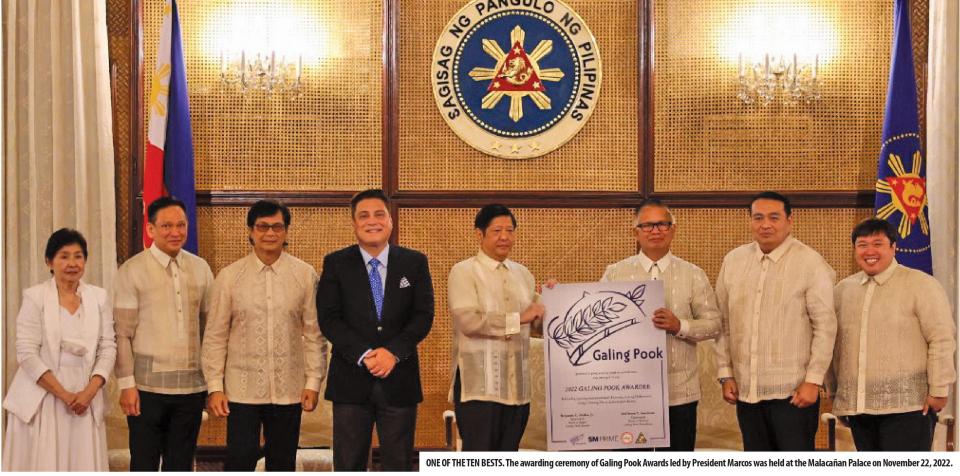Conclusion
WHILE there are moves to amend the economic provisions of the 1987 Constitution, some cautioned against doing so, citing some of these provisions contributed to several economic sectors’ development.
For the energy sector, a lawmaker cited two provisions in the Constitution that contributed to the growth.
One is Article II, Section 20 under State policies, where “The State recognizes the indispensable role of the private sector, encourages private enterprise and provides incentives to needed investments.”
Sen. Sherwin T. Gatchalian, energy committee chairman, said the enactment of the Electric Power Industry Reform Act (Epira) of 2001 transitioned the power industry out of a vertically integrated structure with the government at the center.
“Instead, the Epira allowed the private sector to be at the forefront of developing the industry, albeit guided by the policies of the government,” Gatchalian said. “One offshoot of this provision in the Constitution is the enactment of the Renewable Energy [RE] Act, which jump-started the growth of variable renewable-energy industry in the country, led by the private sector but supported by incentives from the government.”
One incentive under the RE Act is the feed-in-tariff (FiT).
The FiT is basically an incentive in the form of guaranteed power rate given to RE producers for 20 years. The FiT rates are based on installation ceilings set by Department of Energy (DOE). The Energy Regulatory Commission is the agency that sets the FiT rates.
Sectoral growth
GATCHALIAN also cited Article XII Section 15 under National Economy and Patrimony, which states “the Congress shall create an agency to promote the viability and growth of cooperatives as instruments for social justice and
economic development.”
“Electric cooperatives take part in the vital role of promoting social justice and economic development through their missionary electrification mandate,” Gatchalian explained. “In the same way, electric cooperatives contribute to the growth in the energy sector by
providing electricity to far-flung areas, thereby improving the lives of their residents. Furthermore, this missionary electrification mandate has also increased overall energy demand for the entire nation.”
State-owned National Power Corp. is mandated to perform the missionary electrification function through what is called the Small Power Utilities Group, or Spug. The Spug is responsible for providing power generation, and its associated power delivery systems in areas that are not connected to the main transmission system.
For Eric Francia, president of AC Energy, the power arm of Ayala Corp., the 1987 Constitution’s support to the private sector underlines its importance in the growth of the energy sector.
“Our constitution declares the indispensable role of private sector and the need to provide incentives for needed investments. These provide the foundation for important laws, such as BOT [build-operate-transfer], [the] Epira and the RE Act, all of which enabled private-sector participation in the power sector,” Francia said. “We have therefore seen significant investments and benefitted from lower cost of power.”
Open economy
ONE of the subcommittees of the House Committee on Constitutional Amendments has proposed to delete the provision in the 1987 Constitution providing the “60-40” limit on foreign equity sharing.
The subcommittee chaired by Rep. Vicente S.E. Veloso of Leyte said the new proposal effectively provides for an “open economy.”
During one of its recent discussions, the committee said the areas that will be freed from restrictions include the exploitation, development and utilization of natural resources, ownership of alienable lands, franchise on public utilities and ownership of educational institutions, mass media and advertising, among others.
Under the draft proposal, the matter of equity sharing, as well as the terms and conditions involving joint ventures and other undertakings involving the aforementioned areas shall be determined through legislations.
Veloso’s subcommittee is one of four subcommittees consolidating all proposals to create the draft of a proposed Philippine Federal Constitution.
For Gatchalian, ownership issues in the Constitution should also be addressed in any moves to amend the Charter. Insofar as the energy sector is concerned, he cited Article XII, Section 2.
This constitutional provision has limited investments in the upstream oil industry and RE like solar, wind, geothermal, hydropower, run-of-river hydro, ocean to Filipino citizens, corporations or associations, or coproduction, joint venture or production agreements with Filipino citizens corporations, or associations with at least 60 percent of capital owned
by Filipinos.
Gatchalian also said that, the same article, but this time in Section 3, poses some difficulties for 100-percent foreign- owned thermal-generation companies (i.e., coal) who need to find a partner who can provide the land or at least be willing to lease the land to them.
Public oath
WITH the moves to amend the Charter, the leadership of the House of Representatives vowed that all proposed amendments to the 1987 Constitution will be presented to the public through massive information campaign.
The Lower House leaders added all amendments will be debated and voted upon by three-fourths of all members of the Senate and House of Representatives.
Image credits: Nonie Reyes




































